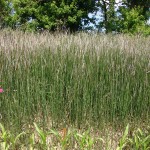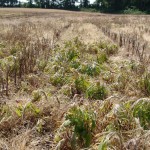
Over the past several years many have had concerns about scouring rush creeping into crop production areas. Scouring rush is not a typical agronomic weed. It normally grows along fence rows, ditch banks, and low lying areas. However, in long term no-tillage production systems scouring rush is increasingly encroaching into crop production areas.




